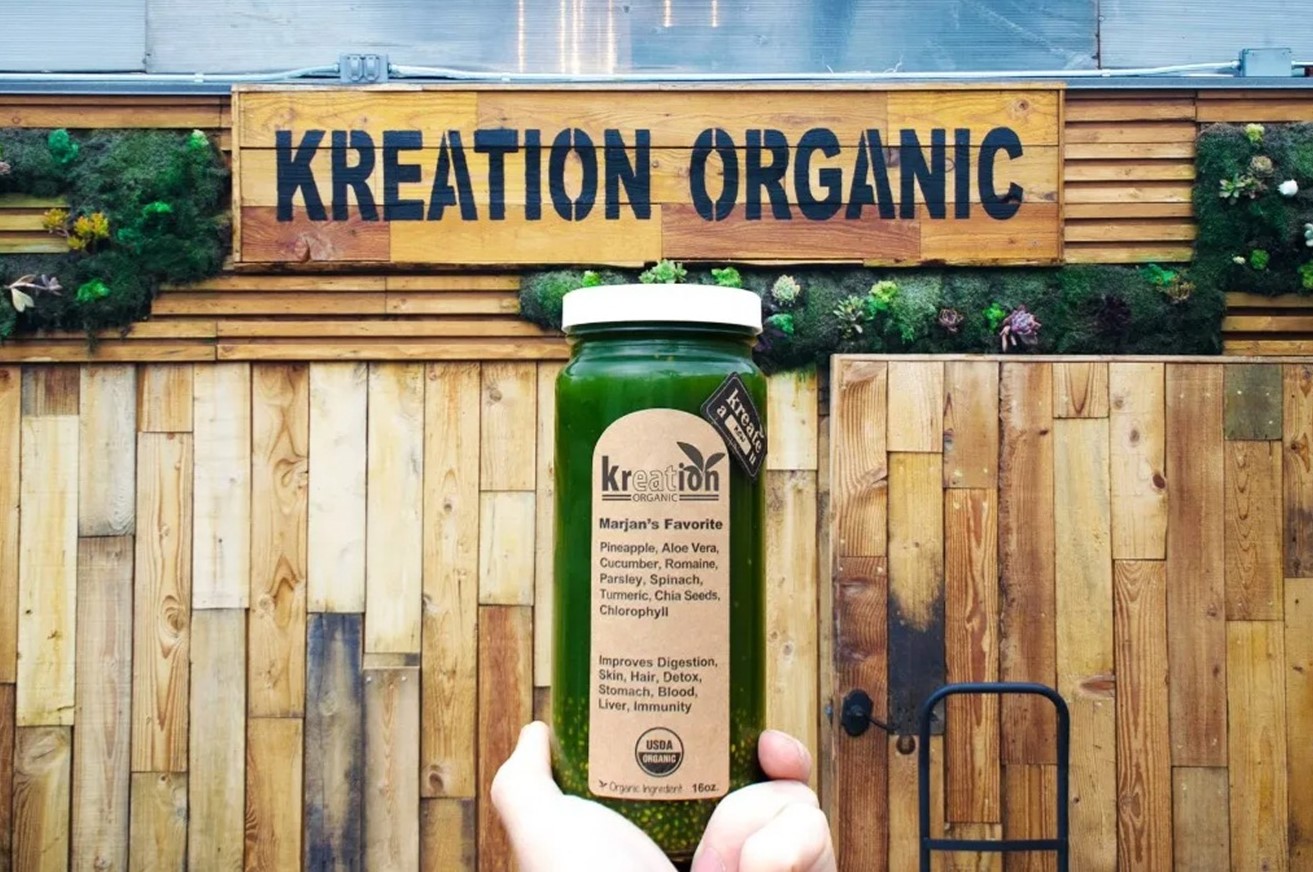
Welcome to our article on “18 Kreation Nutrition Facts”! In today’s fast-paced world, where convenience often takes precedence over health, it’s essential to stay informed about the nutritional value of the food we consume. Whether you’re an avid health enthusiast or simply curious about the impact of your dietary choices, this article aims to provide you with comprehensive and engaging information about the nutrition facts of various kreation foods.
Here, we will delve into the specific nutrients, vitamins, minerals, and calories present in 18 different kreation foods. Armed with this knowledge, you can make informed decisions about your diet and better understand the potential benefits and drawbacks of including these foods in your meals.
So, whether you’re looking for information to help you reach your fitness goals or to simply broaden your culinary horizons, sit back, relax, and let us guide you through the fascinating world of kreation nutrition facts!
Key Takeaways:
- Choose organic and superfoods for a healthier body. They provide more nutrients, protect against diseases, and support sustainable farming. It’s like giving your body a superhero boost!
- Watch out for sugar and processed foods, and pay attention to portion sizes. They can lead to health issues, but mindful eating and stress management can help maintain a balanced diet and well-being.
The Benefits of Organic Food
Organic food offers a range of benefits, including higher nutrient content, lower exposure to pesticides, and support for sustainable farming practices. By choosing organic options, you can ensure that you are nourishing your body with the best quality ingredients.
The Power of Superfoods
Superfoods are nutrient-dense ingredients that provide exceptional health benefits. Incorporating superfoods like kale, chia seeds, and blueberries into your diet can boost your energy, improve digestion, and support overall well-being.
The Role of Antioxidants
Antioxidants are essential for fighting off free radicals and protecting our cells from damage. Filling your plate with colorful fruits and vegetables rich in antioxidants can help reduce the risk of chronic diseases and promote a healthy immune system.
The Importance of Macronutrients
Macronutrients, including carbohydrates, proteins, and fats, are the building blocks of a balanced diet. Each plays a crucial role in supporting various bodily functions, providing energy, and promoting optimal health.
The Truth About Gluten
Contrary to popular belief, gluten is not harmful to everyone. However, individuals with gluten sensitivities or celiac disease should avoid gluten-containing foods to prevent digestive issues and inflammation.
The Role of Fiber
Fiber is essential for a healthy digestive system, promoting regular bowel movements and preventing constipation. It also helps regulate blood sugar levels, improve cholesterol levels, and support weight management.
The Impact of Sugar on Health
Excessive sugar consumption has been linked to numerous health issues, including obesity, diabetes, and heart disease. Limiting your intake of sugary foods and drinks is crucial for maintaining optimal health.
The Importance of Hydration
Staying properly hydrated is vital for overall health and well-being. Drinking an adequate amount of water daily helps maintain body temperature, support digestion, flush out toxins, and keep your skin radiant.
The Benefits of Probiotics
Probiotics are live bacteria and yeasts that promote a healthy gut microbiome. Incorporating foods like yogurt, kefir, and sauerkraut into your diet can improve digestion, enhance nutrient absorption, and strengthen your immune system.
The Role of Omega-3 Fatty Acids
Omega-3 fatty acids are essential for brain health, heart health, and reducing inflammation in the body. Foods such as fatty fish, walnuts, and flaxseeds are rich sources of omega-3s.
The Importance of Adequate Protein Intake
Protein is essential for muscle growth and repair, providing structure to cells, and supporting various bodily functions. Including sources of lean protein, such as chicken, beans, and tofu, in your diet is crucial for optimal health.
The Benefits of Whole Grains
Whole grains contain all parts of the grain, including the bran, germ, and endosperm, providing essential nutrients and fiber. Incorporating whole grains like quinoa, brown rice, and oats into your meals can lower the risk of heart disease and improve digestion.
The Importance of Portion Control
Maintaining portion control is key to managing weight and preventing overeating. Paying attention to serving sizes can help you maintain a healthy balance and prevent the consumption of excess calories.
The Role of Vitamins and Minerals
Vitamins and minerals play a crucial role in supporting overall health and well-being. Consuming a varied and balanced diet that includes plenty of fruits and vegetables ensures adequate intake of essential nutrients.
The Impact of Processed Foods
Processed foods are often high in unhealthy fats, salt, sugar, and artificial additives. Limiting the consumption of processed foods and opting for whole, natural ingredients is essential for maintaining a healthy lifestyle.
The Benefits of Mindful Eating
Mindful eating involves paying attention to the present moment, savoring each bite, and listening to your body’s hunger and fullness cues. This practice can help you develop a healthier relationship with food and make more conscious, nourishing choices.
The Risks of Trans Fats
Trans fats are artificially produced fats that can raise bad cholesterol levels and increase the risk of heart disease. It is important to avoid artificial trans fats found in margarine, fried foods, and processed snacks.
The Impact of Stress on Nutrition
Stress can affect eating habits, leading to emotional eating or cravings for unhealthy foods. Implementing stress management techniques and finding healthier ways to cope with stress can help maintain a balanced diet and overall well-being.
Conclusion
In conclusion, the 18 Kreation Nutrition Facts are a fascinating insight into the world of food and nutrition. These facts highlight the importance of maintaining a balanced diet and making healthy food choices. From the benefits of eating fresh fruits and vegetables to the impact of processed foods on our health, these nutrition facts serve as a reminder to prioritize our well-being.
Understanding these facts can empower us to make informed decisions about the food we consume, helping us lead healthier and more fulfilling lives. So let’s embrace these nutrition facts and use them as a guide to fuel our bodies with the right nutrients, nourishing ourselves from the inside out.
FAQs
1. What are the key nutrients to focus on for a balanced diet?
The key nutrients to focus on for a balanced diet include carbohydrates, proteins, fats, vitamins, and minerals. These nutrients play essential roles in maintaining our overall health and well-being.
2. Are processed foods really that bad for us?
Yes, processed foods can be detrimental to our health if consumed in excess. They often contain high levels of unhealthy fats, sugars, and additives that can lead to weight gain, heart disease, and other health issues.
3. How can I incorporate more fruits and vegetables into my diet?
You can incorporate more fruits and vegetables into your diet by adding them to your meals, snacking on them, or including them in smoothies. Experiment with different recipes and cooking methods to find enjoyable ways to include these nutrient-rich foods in your daily routine.
4. Is it necessary to take dietary supplements?
In general, it is best to get your nutrients from whole foods rather than relying solely on dietary supplements. However, certain individuals, such as pregnant women or those with specific deficiencies, may benefit from supplements under the guidance of a healthcare professional.
5. Can I still indulge in my favorite foods while maintaining a healthy diet?
Absolutely! Maintaining a healthy diet doesn’t mean completely eliminating your favorite foods. It’s all about moderation and balance. Enjoy your favorite treats occasionally while making sure the majority of your diet consists of nutritious, whole foods.
Was this page helpful?
Our commitment to delivering trustworthy and engaging content is at the heart of what we do. Each fact on our site is contributed by real users like you, bringing a wealth of diverse insights and information. To ensure the highest standards of accuracy and reliability, our dedicated editors meticulously review each submission. This process guarantees that the facts we share are not only fascinating but also credible. Trust in our commitment to quality and authenticity as you explore and learn with us.


